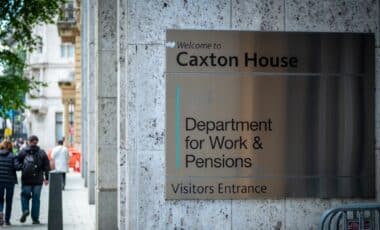The Department for Work and Pensions (DWP) has clarified how personal savings impact Universal Credit and other means-tested benefits. As highlighted by the Birmingham Mail, claimants with more than £6,000 in savings could see their monthly benefit payments reduced. Once savings exceed £16,000, eligibility for Universal Credit generally ends.
This move comes as part of the DWP’s push to ensure benefits go to those most in need, while also stepping up efforts to detect fraud and overpayments within the welfare system.
How the Savings Reduction Works
The DWP has set clear guidelines on how savings and investments affect Universal Credit entitlements. If a claimant’s total savings fall between £6,000 and £16,000, a tariff income is applied. This means the department assumes a monthly income of £4.35 for every £250, or part thereof, above the £6,000 mark—even if the savings don’t actually generate that income.
For example, someone with £6,300 in savings will have £300 of it counted. That figure is divided into £250 units (plus the remaining part), resulting in a £8.70 monthly deduction from their Universal Credit payment. This deduction continues progressively with higher savings until the £16,000 upper threshold is reached, at which point no Universal Credit is payable.
This policy is in place to ensure that claimants who have access to significant financial resources contribute to their living costs before receiving full state support.
Other Affected Benefits and Deduction Rules
It’s not just Universal Credit recipients who are affected by savings limits. The same principles apply to income-based Jobseeker’s Allowance (JSA), income-related Employment and Support Allowance (ESA), Income Support, and Housing Benefit. However, these benefits use a slightly different calculation model.
In these cases, £1 per week is deducted for every £250, or part thereof, above £6,000 in savings. The gradual reduction mirrors that used for Universal Credit but operates on a weekly rather than monthly deduction scale. This means that over time, savings—even relatively modest ones—can lead to significant reductions in benefit support for claimants across multiple programs.
It’s essential for claimants to be aware of these rules, especially if they receive lump sums such as inheritance, redundancy payments, or compensation, which can temporarily push their savings over the thresholds.
Government’s Anti-Fraud Push and Oversight
In parallel with these savings thresholds, the DWP is enhancing its efforts to tackle benefit fraud. This includes the introduction of automated bank account checks for claimants whose savings are suspected of exceeding the permitted limits. These checks are part of a broader government initiative to improve accountability and prevent exploitation of the welfare system.
Liz Kendall, Secretary of State for Work and Pensions, stated that new enforcement powers would include stronger actions against fraudsters, potentially including driving licence suspensions in the most serious cases.
“We are turning off the tap to criminals who cheat the system and steal law-abiding taxpayers’ money,” she said.
Kendall also highlighted that the new measures would be backed by reporting safeguards and independent oversight, ensuring the system remains fair and proportionate in its approach.









